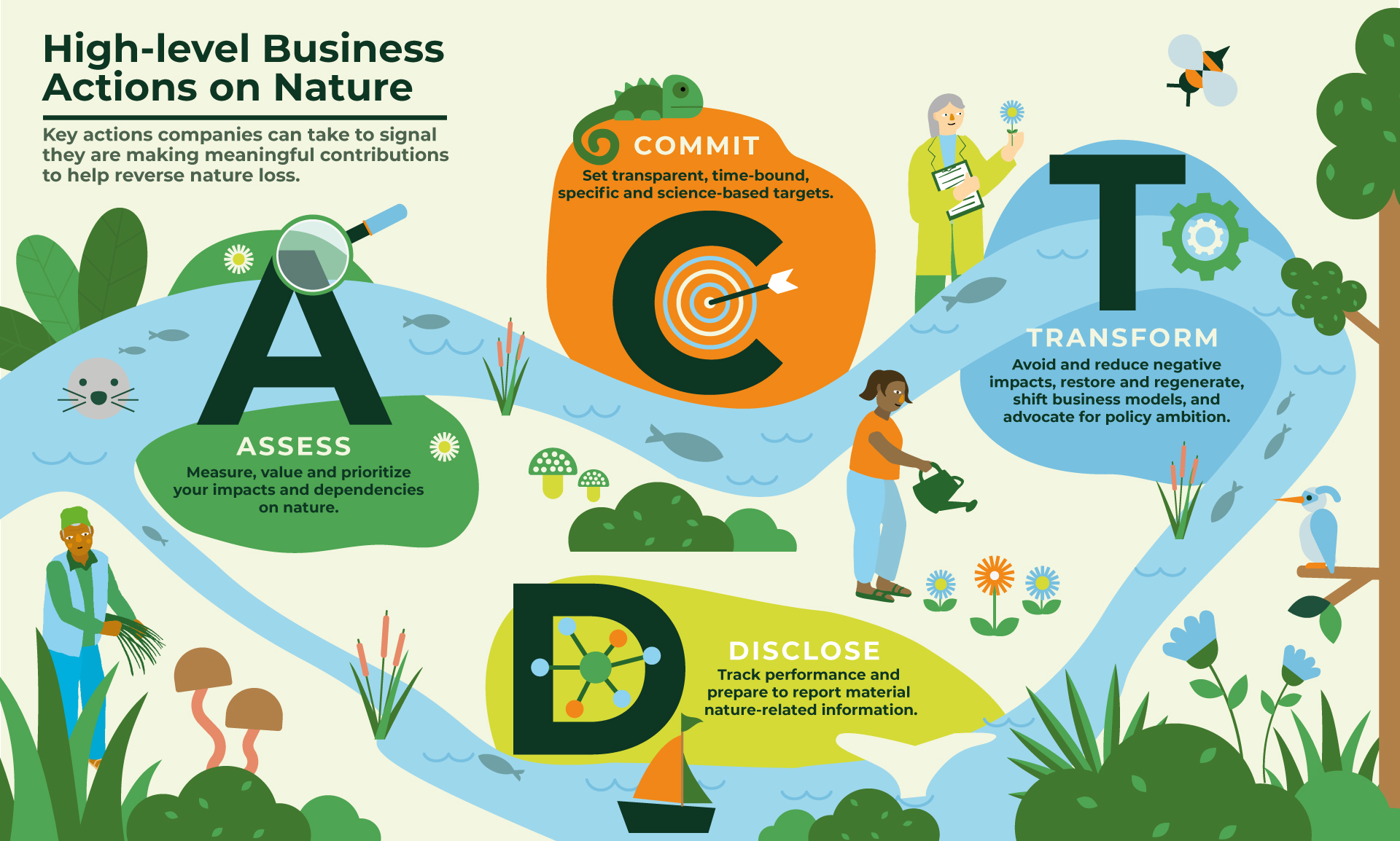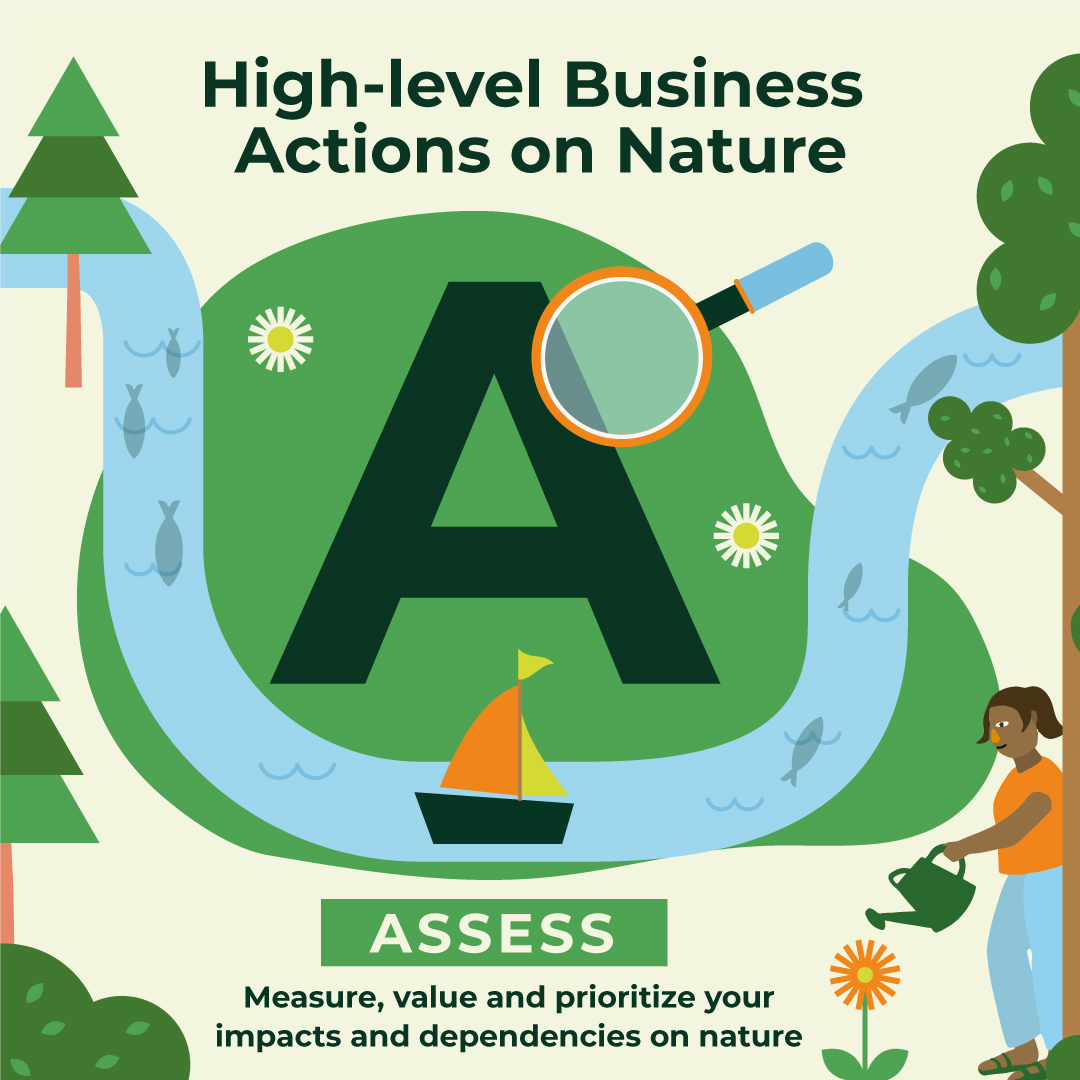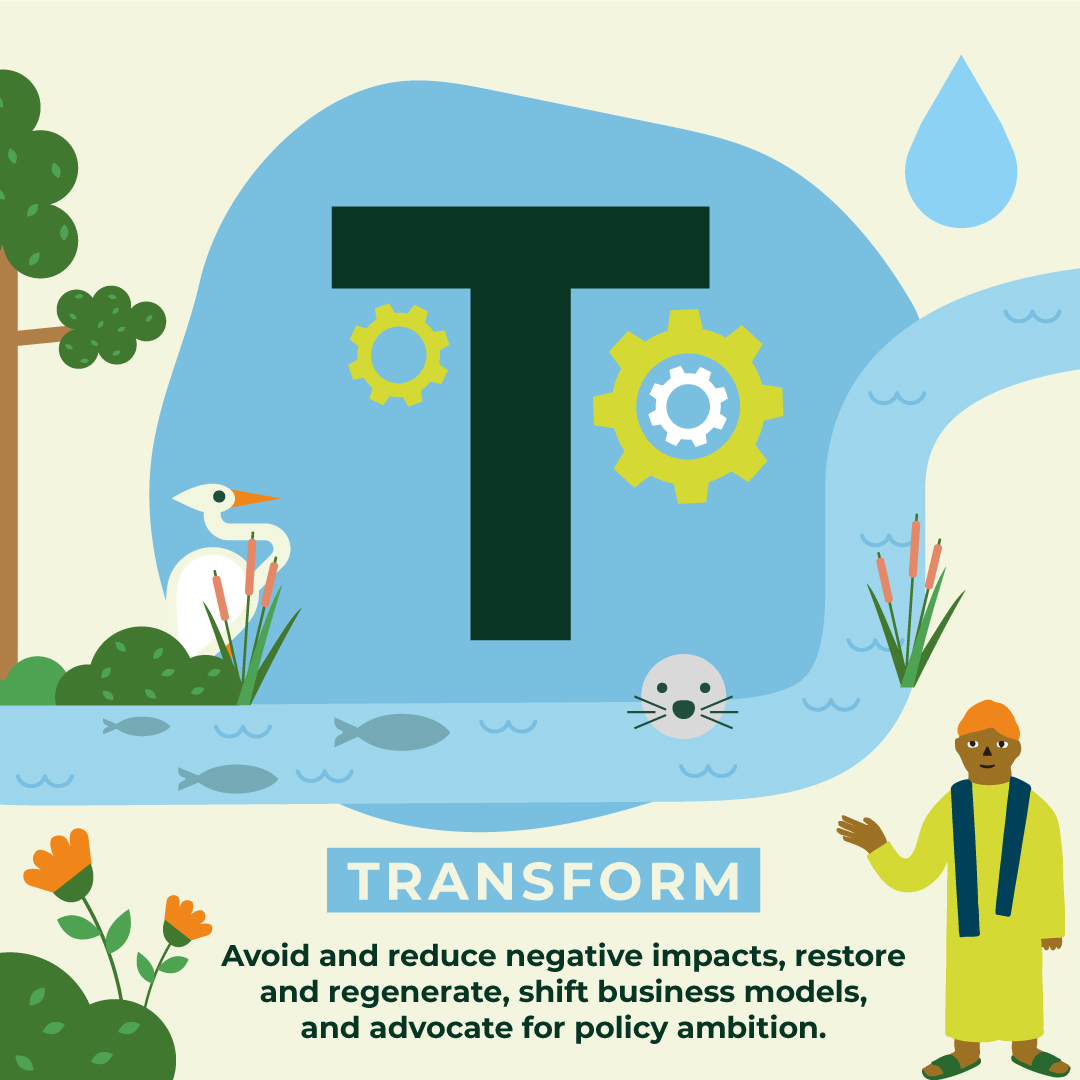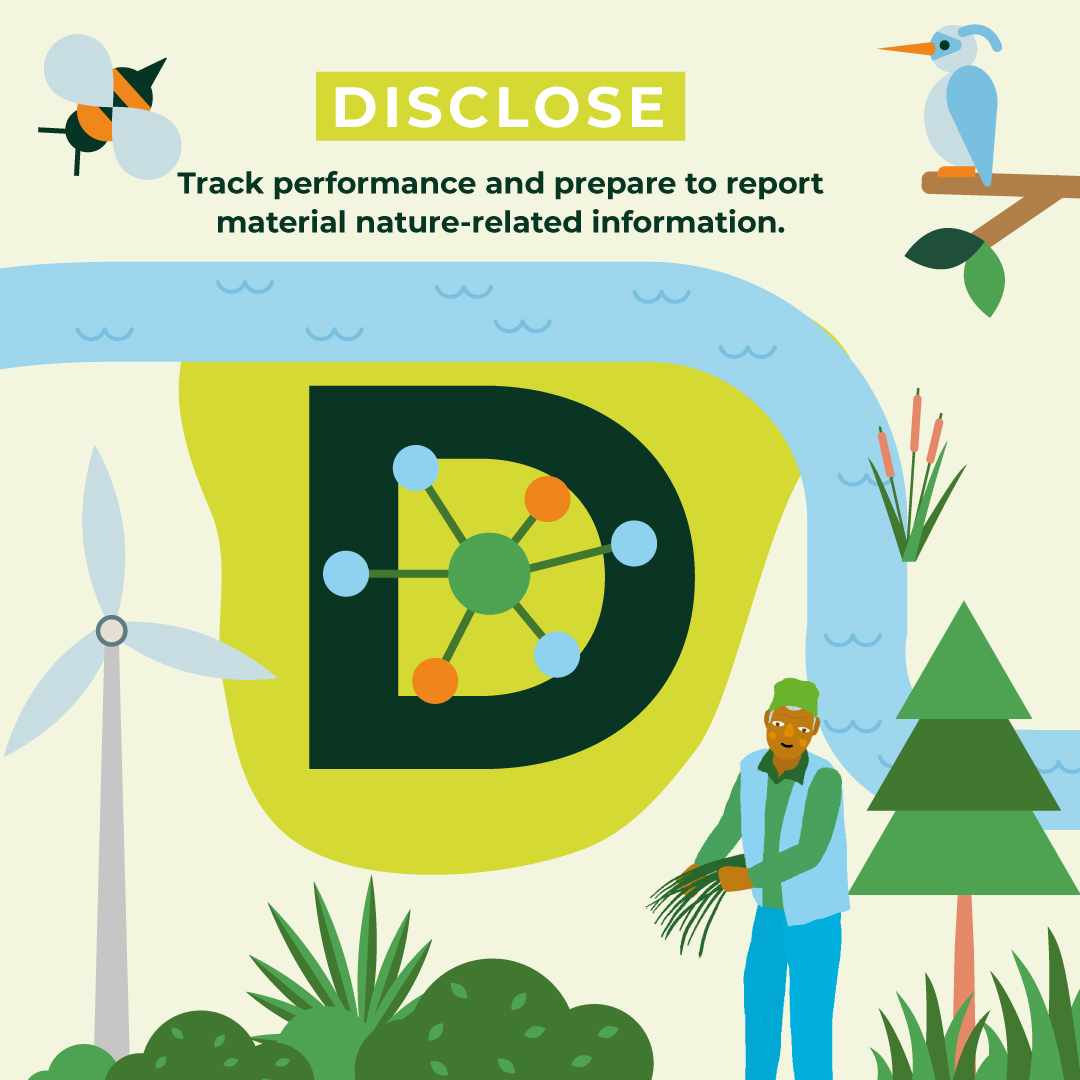
English | 中文

International Biodiversity Day: ACT-D in Business Actions
source:goldencsr date:2023-05-24 16:22:36May 22 is International Biodiversity Day.
This year’s Biodiversity Day is especially significant. After enduring delays due to the global pandemic, 196 governments met at COP15 the end of last year to agree on a Global Biodiversity Framework to halt and reverse the loss of nature by 2030.
The historic agreement aims to protect 30% of Earth’s land and sea and ensure the full integration of biodiversity and its multiple values into policies, regulations, planning and development processes and poverty eradication strategies, both nationally and internationally.
This year, the theme for International Biodiversity Day "From Agreement to Action: Build Back Biodiversity" underscores the dual nature of the optimism felt at the ambition of the agreement, coupled with the recognition of the urgency and scope of action required to deliver the agreements’ goals and targets.
Nature’s fundamental role in the functioning of our global economic systems is reflected throughout the framework and private sector accountability is firmly embedded within an international biodiversity agreement for the first time. The surge in business interest in 2023 around biodiversity action is most notably driven by Target 15 within the framework which requires that all large businesses and financial institutions assess and disclose their risks, impacts and dependencies on biodiversity along their operations, supply and value chains and portfolios by 2030.
Businesses and financial institutions are now looking for direction and clarity as they begin to navigate the market’s complex landscape of tools, frameworks, methodologies and initiatives.
In order to streamline the space for businesses, leading organizations including Capitals Coalition, Business for Nature (BfN), Science-Based Targets Network (SBTN), Taskforce for Nature-related Financial Disclosures (TNFD), World Business Council for Sustainable Development, World Economic Forum and World Wildlife Fund (WWF) have joined forces to develop a series of high-level business actions on nature. The guidance provides businesses with a clear pathway through the core actions they can take to signal they are making meaningful contributions to help reverse nature loss and contribute to a nature-positive, net-zero and equitable world.
These high-level actions can easily be remembered using the acronym ACT-D: Access, Commit, Transform and Disclosure.

On the International Biodiversity Day 2023, these organizations jointly launched the ACT-D introductory video, which provides an easy-to-understand introduction to the methodology and is jointly promoted globally by the Capitals Coalition national networks. GoldenBee Consulting, as the convener of Capitals China Hub, prepared the Chinese version of the introductory video of the high-level business actions on nature and introduced it to Chinese companies to promote the development of biodiversity in China.

Assess: To measure, value and prioritize your impacts and dependencies on nature.
Methods and tools that can be used in Assess phase may include: Science-based Targets for Nature: Initial Guidance for Nature from SBTN, Natural Capital Protocol, Natural Capital Toolkit, TEEBAgriFood Operational Guidelines for Business, the guidance provided by the TNFD etc.

Commit through setting transparent, time-bound, specific and science-based targets.
Use BfN’s “commitment list” to locate relevant commitments and connect companies’ efforts to collective global action. Take inspiration from the SBTN initial guidance and their suggested interim targets, and set measurable targets at each priority location for practice.

Transform: Avoid and reduce negative impacts, restore and regenerate, shift business models, and call for policy ambition.
1. Prevent impacts from happening in the first place or eliminate the impact entirely. Do as much as possible to minimize impacts across your value chain when elimination is not possible.
2. Actively work in collaboration with others within your operations and across value chains to restore ecosystems. The NBS Benefits Explorer is a great starting tool for companies who want to invest in nature-based solutions.
3. Shift business strategy and models. Adapt company’s strategy and business model to be “net-positive,” to “give back more than you take” to restore ecosystems with collective measurable, reported and verified positive impacts, while also ensuring your negative impact footprint is as low as possible.
4. Collaborate with your value chains and engage with key stakeholders.
5. Advocate for ambitious government policies that will scale and speed up further positive business action, for example, signing up to BfN’s “Nature is Everyone’s Business” Call to Action.

Disclose: Track performance and prepare to publicly report material nature-related information throughout your journey.
Information disclosure is also important in the process of implementing ACT.
The company should:
1. Monitor progress regularly with the frequency appropriate for your nature commitments, and report progress made towards nature positive goals using frameworks such as the TNFD;
2. Communicate findings with key stakeholders throughout the process;
3. Seek out independent validation of processes and verification to enhance credibility of actions;
4. And align reporting with major reporting standards as much as possible, such as Global Reporting Initiative (GRI), Sustainability Accounting Standards Board (SASB), International Finance Corporation (IFC), and the European Union Non-Financial Reporting Directive, as well as with environmental data aggregators like CDP.
Pioneering companies in a range of industries and regions are already responding to and joining these key initiatives, taking steps to assess their impact on and dependence on nature to support their decision-making activities. Capitals Coalition recently released ACT-D case studies demonstrating 10 business actions (click here to download the case studies).
The International Biodiversity Day highlights the importance of achieving the goals of the Global Biodiversity Framework and the necessary role of business and financial institutions in achieving them. It is not only a framework for biodiversity but also a framework for collective action by the international community. Through the adoption of the framework of high-level business actions on nature (ACT-D), companies can take a series of key actions that to begin to contribute meaningfully to reversing the destruction of nature and building a sustainable future.
Capitals China Hub
The Capitals China Hub was established in July 2022 by the global organization Capitals Coalition and GoldenBee Consulting to promote the mainstreaming of biodiversity management in business and industry and to incubate biodiversity business solutions in China.
The Capitals Coalition is a global collaboration of over 350 of the world’s leading organizations, aiming at transforming the way decisions are made by including the value provided by nature, people and society. It is the developer of two internationally recognized frameworks, the Natural Capital Protocol and the Social and Human Capital Protocol. The Capitals China Hub will work with other 14 hubs around the world to promote the accounting of produced, human, natural and social capitals, and to promote greater understanding of the impact on nature and people among businesses, financial institutions and governments.
Upcoming Events
On June 8-9, the 18th International Corporate Social Responsibility Forum, experts from the Capitals Coalition will come to the event in Beijing to introduce global biodiversity trends and provide guidance for companies in their biodiversity work. At the forum, the Capitals China Hub will launch the action of compiling China's ACT-D case studies.
On June 12-13, Capitals China Hub will host two workshops on business biodiversity in Beijing and Shenzhen respectively.
If you are interested in participating in these events, please contact:
Ms. Xuan Fu
E-mail: xuan.fu@goldenbeechina.com
Tel: 18380418240
For updates on the Capitals China Hub:https://www.goldenbeethinktank.com/portal/list/index/id/24.html